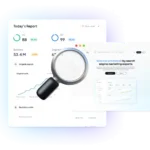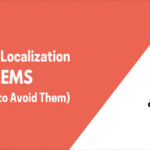Table of Contents
In today’s fast-paced and highly competitive business landscape, having a strong digital marketing strategy is essential for success. With the increasing number of consumers turning to the Internet to make purchasing decisions, businesses need to establish a solid online presence to reach their target audience effectively. Expert digital marketing encompasses a wide range of strategies, including SEO services, social media marketing, content marketing, online advertising, search engine marketing, and website optimization.
Through effective keyword research and target audience analysis, businesses can create engaging campaigns that resonate with their audience and drive sustainable growth. By leveraging tools like Google Analytics, businesses can track the performance of their digital marketing efforts and make data-driven decisions to optimize their strategies.
The Power of Building Relationships in Digital Marketing
A key aspect of successful digital marketing is building great relationships. A relationship-oriented agency understands the importance of putting people first and tailoring their strategies to meet clients’ goals and audiences’ needs.
By making real-time, data-driven decisions, businesses can build strong relationships with their target audience and create awareness for their brand. Building great relationships also extends to the agency-client relationship, as a strong company culture and happy employees result in extraordinary work.
With a solid grasp on the brand and market, the agency can provide a roadmap to take businesses from where they are to where they want to be, leveraging data to steer their creative strategy.
Putting People First
A relationship-oriented agency prioritizes the needs and interests of their clients and target audience. By understanding their clients’ goals and their audiences’ needs, they can create campaigns and strategies that resonate and drive results. This customer-centric approach builds trust and loyalty, making customers more likely to engage and interact with the brand.
Data-Driven Decision Making
In today’s digital landscape, data holds immense power. By analyzing customer data and marketing metrics, businesses can make informed decisions that drive their digital marketing initiatives. A relationship-oriented agency utilizes data-driven insights to optimize campaigns, identify areas for improvement, and deliver exceptional results.
Digital Engagement and Awareness
Building strong relationships with the target audience goes beyond transactional interactions. It involves creating meaningful connections and fostering engagement through various digital channels. By crafting compelling content, personalized experiences, and interactive campaigns, businesses can capture attention, increase brand awareness, and nurture long-term relationships.
The Power of Content Marketing in Digital Marketing
Content marketing is a driving force in the world of digital marketing. By creating valuable and relevant content, businesses can effectively engage their target audience and establish trust and authority within their industry. Through the publication of blog posts, articles, infographics, and videos that address customers’ pain points and interests, businesses can attract potential customers and encourage them to share the content, thus expanding the reach of their brand.
Valuable content serves as a connection between businesses and their target audience. By offering insights, solutions, and relevant information, businesses can position themselves as experts in their field, showcasing their unique value proposition and differentiating themselves from competitors.

Content marketing also plays a vital role in building trust and authority. When businesses provide valuable content that meets the needs of their audience, they establish credibility and strengthen their brand’s reputation. By consistently delivering high-quality and relevant content, businesses can create a loyal following of engaged users who trust the brand’s expertise and recommendations.
Furthermore, content marketing enables businesses to target their specific audience effectively. By understanding the interests, preferences, and pain points of their target audience, businesses can develop content that resonates with them and captures their attention. Through targeted content, businesses can attract the right customers and drive conversions.
Overall, content marketing is a powerful strategy that allows businesses to connect with their target audience, build trust and authority, and drive results. By consistently delivering valuable and relevant content, businesses can elevate their brand and establish a strong online presence that resonates with their target audience.
The Power of Social Media Marketing in Digital Marketing
Social media platforms have revolutionized the way businesses engage with their audience. With over 3.8 billion users worldwide, platforms like Facebook, Twitter, Instagram, and LinkedIn offer unparalleled opportunities for businesses to connect with their target audience, increase brand exposure, and drive meaningful engagement.
In today’s digital landscape, social media marketing has become an essential strategy for businesses looking to elevate their brand and reach a wider audience. By leveraging social media platforms, businesses can create a loyal community of followers, boost brand awareness, and generate leads. However, success on social media requires more than just posting content; it requires a strategic approach that focuses on engaging the target audience and delivering valuable experiences.
Social media marketing allows businesses to target specific demographics and ensure that their message reaches the right people at the right time. With advanced targeting options and sophisticated algorithms, businesses can tailor their content to resonate with their ideal customers, driving higher engagement and conversion rates.
One of the key advantages of social media marketing is the ability to connect with the target audience on a more personal level. By leveraging the interactive nature of social media platforms, businesses can build relationships, create meaningful connections, and establish brand loyalty. Through engaging posts, direct messaging, and interactive features like polls and quizzes, businesses can foster a sense of community and ensure their audience feels valued and heard.
Additionally, social media advertising offers businesses the opportunity to amplify their reach and target specific segments of their audience. With options to create custom audiences based on demographics, interests, and behaviors, businesses can optimize their ad spend and maximize their return on investment. Whether it’s promoting a new product, driving traffic to the website, or generating leads, social media advertising enables businesses to achieve their marketing objectives with precision.
The power and influence of social media marketing extend beyond the platform itself. It plays a vital role in enhancing brand exposure and improving search engine rankings. Social signals, such as likes, shares, and comments, contribute to a brand’s online reputation and can positively impact its visibility in search engine results. By implementing a successful social media marketing strategy, businesses can increase their brand’s online presence, attract a larger audience, and ultimately drive sustainable growth.
Below is a visual representation of the power of social media marketing:
| Benefits of Social Media Marketing | Examples |
|---|---|
| Increased brand exposure | Over 1 million followers on Instagram |
| Engaged target audience | High post engagement and active community |
| Higher conversion rates | Direct sales from social media campaigns |
| Improved customer loyalty | Positive customer reviews and testimonials |
As businesses continue to navigate the ever-evolving digital landscape, social media marketing remains a powerful tool for reaching and engaging the target audience. By leveraging the power of social media platforms, businesses can increase brand exposure, foster meaningful relationships, and achieve sustainable growth in today’s competitive market.
The Power of Search Engine Optimization (SEO) in Digital Marketing
Search engine optimization (SEO) plays a crucial role in digital marketing. By implementing effective SEO strategies, businesses can improve their search engine rankings, attract organic traffic, and increase brand exposure. With the right approach to website optimization and keyword research, businesses can create a strong online presence and drive targeted traffic to their website.
SEO involves optimizing various elements of a website, such as content, HTML tags, and metadata, to make it more accessible and appealing to search engines. By incorporating relevant keywords and providing a seamless user experience, businesses can enhance their website’s visibility and increase the likelihood of higher rankings in search engine results pages.
Keyword research is a fundamental aspect of SEO. By identifying the most relevant and frequently searched keywords in their industry, businesses can tailor their content to align with what their target audience is searching for. This ensures that their website appears prominently when users search for related products or services, increasing the chances of attracting qualified traffic.
Website optimization involves improving various technical aspects to enhance the overall user experience. This includes optimizing page load speed, ensuring mobile responsiveness, and creating a user-friendly navigation structure. By providing a seamless browsing experience, businesses can keep visitors engaged and encourage them to explore more of the website, ultimately leading to higher conversion rates.
The benefits of implementing strong SEO practices extend beyond website visibility. By attracting organic traffic, businesses can connect with users who are actively searching for products or services, increasing the likelihood of conversions and generating valuable leads. This targeted traffic is more likely to engage with the website and make a purchase, contributing to the overall growth and success of the business.
The Power of Data and Analytics in Digital Marketing
Data and analytics play a significant role in digital marketing. By closely monitoring key metrics such as website traffic, conversion rates, and customer behavior, businesses can make informed decisions to optimize their strategies for better results.
Utilizing data-driven decision making is crucial for businesses to stay ahead in the digital landscape. By analyzing the data provided by tools like Google Analytics, businesses can gain valuable insights into the performance of their digital marketing efforts. This helps them track the effectiveness of their campaigns and identify areas for improvement.
With Google Analytics, businesses can track various metrics such as bounce rate, click-through rate, and time spent on the website. These key metrics provide a comprehensive understanding of how customers interact with the website and the effectiveness of marketing campaigns.
Customer behavior analysis is another powerful application of data and analytics in digital marketing. By analyzing customer demographics, preferences, and online behavior, businesses can gain deep insights into their target audience, allowing them to tailor their marketing strategies to suit their customers’ needs and interests.

The ability to leverage data and analytics extends beyond campaign effectiveness and customer behavior analysis. It also enables businesses to adjust their marketing strategies, target the right audience, and allocate resources effectively to maximize return on investment (ROI).
In summary, data and analytics are powerful tools that empower businesses to make data-driven decisions and optimize their digital marketing strategies. The insights provided by tools like Google Analytics enable businesses to track key metrics, understand customer behavior, and ultimately achieve their marketing goals.
Elevate Your Brand with Expert Digital Marketing
In today’s digital age, expert digital marketing is essential for businesses looking to elevate their brand to new heights and achieve sustainable growth. By harnessing the power of various digital marketing strategies, including SEO services, social media marketing, content marketing, online advertising, search engine marketing, and website optimization, businesses can effectively connect with their target audience, establish brand authority, and drive increased revenue.
One key pillar of successful digital marketing is building strong relationships. By prioritizing the development of meaningful connections with both the target audience and the agency itself, businesses can foster trust and loyalty. Additionally, creating valuable and relevant content is crucial. By delivering informative and engaging content, businesses can position themselves as industry experts and build a loyal customer base.
Further, leveraging social media platforms allows businesses to directly engage with their target audience and boost brand exposure. With the right social media marketing strategies, businesses can effectively drive traffic to their website, generate leads, and ultimately increase conversions. In addition, optimizing websites for search engines through search engine optimization techniques is vital. By improving search engine rankings, businesses can attract organic traffic and increase their visibility to potential customers.
Lastly, utilizing data and analytics provides businesses with valuable insights into their digital marketing efforts. By making data-driven decisions, businesses can identify areas for improvement, target the right audience, and allocate resources effectively. Embracing these digital marketing strategies and making informed decisions is key to staying ahead of the competition and achieving sustainable growth in the ever-evolving digital landscape.
FAQ
What is digital marketing?
Digital marketing refers to the use of online channels and strategies to promote products or services and reach a target audience. It includes various tactics such as SEO services, social media marketing, content marketing, online advertising, search engine marketing, and website optimization.
Why is building relationships important in digital marketing?
Building relationships is crucial in digital marketing because it helps businesses establish trust and connection with their target audience. By putting people first and tailoring strategies to meet clients’ goals and audience needs, businesses can create awareness for their brand and drive sustainable growth.
What role does content marketing play in digital marketing?
Content marketing is a crucial aspect of digital marketing. It involves creating valuable and relevant content, such as blog posts, articles, infographics, and videos, to engage the target audience, build trust, and position the brand as an industry expert.
How can social media marketing benefit businesses?
Social media marketing allows businesses to engage their audience on platforms like Facebook, Twitter, Instagram, and LinkedIn. It enables them to foster a loyal community of followers, increase brand exposure, target specific demographics, and create personalized connections with their audience.
What is the importance of search engine optimization (SEO) in digital marketing?
SEO is crucial in digital marketing as it improves a website’s visibility in search engine results, attracting organic traffic and increasing brand exposure. By optimizing the website for relevant keywords and enhancing the user experience, businesses can improve their search engine rankings and increase the likelihood of converting website visitors into customers.
How does data and analytics impact digital marketing?
Data and analytics play a significant role in digital marketing. By monitoring key metrics like website traffic, conversion rates, and customer behavior, businesses can make informed decisions to optimize their strategies and achieve better results. Tools like Google Analytics provide valuable insights into the performance of digital marketing efforts, allowing businesses to track campaign effectiveness and identify areas for improvement.
How can expert digital marketing elevate my brand and drive sustainable growth?
Expert digital marketing encompasses various strategies, such as SEO services, social media marketing, content marketing, and website optimization, that can help businesses connect with their target audience, build brand authority, and drive increased revenue. By leveraging these strategies and making data-driven decisions, businesses can navigate the dynamic digital landscape and stay ahead of the competition.













